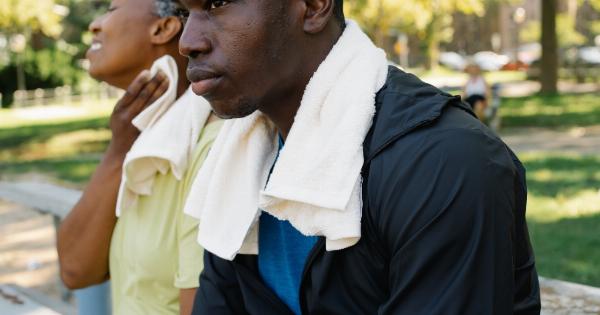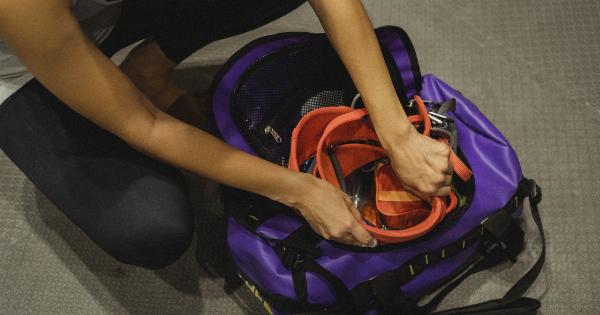As temperatures rise to record-breaking levels, it’s important to take necessary precautions to prevent heat-related illnesses.
Heatwaves have become more common in recent years, and prolonged exposure to extreme heat can lead to dehydration, heat exhaustion, and in severe cases, heatstroke. It’s crucial to know how to stay safe during a heatwave, so here are some tips to follow:.
1. Stay hydrated
One of the most important things to do during a heatwave is to stay hydrated. Drink plenty of water, even if you don’t feel thirsty. Avoid alcohol, caffeine, and sugary drinks, as they can dehydrate you further.
You can also eat fruits and vegetables with high water content, such as watermelon, cucumber, and grapefruit.
2. Dress for the heat
Wear lightweight, loose-fitting clothes in light colors. Dark colors absorb more heat, so it’s best to avoid them. Wear a hat and sunglasses to protect your face and eyes from the sun.
3. Stay cool
Stay indoors in air-conditioned buildings as much as possible. If you don’t have air conditioning at home, go to public places that are air-conditioned, such as malls, libraries, or community centers.
Take cool showers or baths, or use a damp cloth to cool down your body.
4. Avoid outdoor activities
Avoid strenuous outdoor activities, especially during midday when the sun is the strongest. If you need to be outside, take frequent breaks in shaded areas and stay hydrated.
5. Check on others
Check on family, friends, and neighbors, especially if they’re elderly or have medical conditions. Heat-related illnesses can affect anyone, but some people are more vulnerable than others.
Make sure they’re following the necessary precautions and offer assistance if needed.
6. Know the signs of heat-related illnesses
It’s important to know the signs of heat exhaustion and heatstroke, so you can seek medical attention if necessary. Symptoms of heat exhaustion include heavy sweating, weakness, dizziness, nausea, and headache.
If left untreated, it can lead to heatstroke, a more severe condition that can cause confusion, seizures, and loss of consciousness.
7. Keep your home cool
If you’re staying home during a heatwave, there are several ways you can keep your home cool. Use shades or blinds to block out the sun and keep windows closed during the day. Open windows at night to let cool air in.
Use fans or air conditioning to circulate the air and lower the temperature.
8. Be prepared for power outages
During extreme heat, power grids can become overloaded, leading to power outages. It’s important to be prepared for such situations. Have a battery-powered fan or hand-held fan available, and keep a supply of water on hand.
If you need to evacuate, make sure you have an emergency kit ready.
9. Protect your pets
Pets can also suffer from heat-related illnesses, so it’s important to take care of them during a heatwave. Make sure they have access to plenty of water and shade.
Avoid walking them during midday when the pavement can be hot, and never leave them in a parked car.
10. Follow local heatwave warnings
Lastly, follow local heatwave warnings and advisories. Stay up-to-date on weather forecasts and take necessary precautions to stay safe.
Conclusion
A heatwave can be a dangerous situation, but by following these tips, you can stay safe and prevent heat-related illnesses. Remember to stay hydrated, stay cool, and avoid strenuous activities during extreme heat.
Check on others, know the signs of heat-related illnesses, and be prepared for power outages. Protect your pets and follow local heatwave warnings. Stay safe and stay cool!.





























